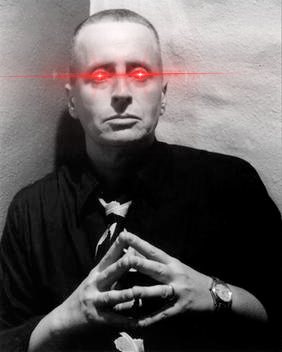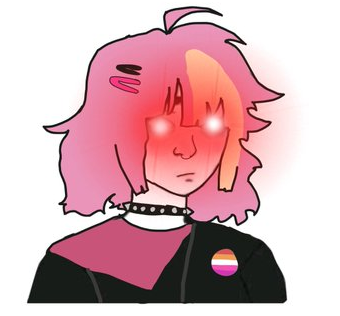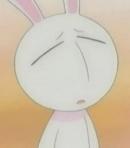I really don't give a fuck where you're at in the book, tell us your thoughts so far. And I better not seeing any of you shitlibs saying "Wahhh someone already said this buttttt", I don't give a single fuck. I want to hear them regardless of whether or not someone has already said something similar. Put your thoughts out there and I won't ask again. Do some self-crit amongst each other.
- Are you beginning to understand how trans issues are inexplicably tied to cis people as well as trans people?
- What can be done materially on this site to further the trans struggle?
- What have you learned from Trans Liberation?
- What was shocking for you to read about?
- What misconceptions regarding trans struggles did you have that were clarified through the reading?
- Is there anything you didn't understand that you have questions about?
- Do you have a better understanding of what 'trans rights' entails instead of meaninglessly shouting it into the void?
- Have you learned anything about yourself through reading this book involving your own gender?
- Are there things that brought out intense emotion?
- Literally anything else you want to say. God, please, just fucking discuss.
For any of you confused about language used throughout the book, I highly encourage you to read this brief wall of text that I wrote breaking things down.
If you found the parts about Leslie's interactions with doctors to be horrifying, please read this comment from yours truly about my experience with needing to find a new doctor a couple weeks ago and the challenges I faced with that. I got very lucky and that experience is no where N E A R as bad as M O S T of us have had it, but it's an experience I feel comfortable sharing.
Here is a comment from Quartz talking about her own lived experiences with transphobia. Read it and let the emotional confusion that this is the life a lot of us are forced to live flow through you.
I'm probably missing a few but it's fine. Yes I absolutely kept a spreadsheet of people who commented. You commented, you're getting called out. Don't make me ask for your thoughts again. :leslie-shining:
username list
@PM_ME_YOUR_FOUCAULTS
@jurassicneil
@jabrd
@kingspooky
@shitstorm
@Charcuterie
@MasterCombine
@boyfriend_ascendent
@Oso_Rojo
@Papajohnsmisty
@MonteCristo
@asaharyev
@Not_irony
@QuickEveryonePanic
@Spinoza
@Beatnik
@hexaflexagonbear
@viva_la_juche
@SirLotsaLocks
@take_five_seconds
@Janked
@Washburn
@domhnall
@grym
@VanilRethan
@flees
@Fakename_Bill
@greentea
@SeizeDameans
@ScreamoBMO
@indorri
@TheCheeseElement
@ComradeEchidna
@futomes
@fusion513
@lizbo
@CUM_BOT
@IHungerforFlesh
@git
@No_Values
@Rusty_Shackleford
@boboblaw
@DerEwigeAtheist
@RedArmor
@communistfuckface
@Straight_Depth
@THE_FUNNY
@AnarchoMalarkeyist
@read_freire
@science_pope
@PorkrollPosadist
@BrokenPolecat
@240p
@marxisthayaca
@ratfuckingfink
@Multihedra
@unperson
@garbology
@Sperguze
@LaBellaLotta
@trotyacht
@chantox
@bewts
@StupendousGirl17
@CommieMike
@maverick
@Uncle_Hoe
@DashEightMate
@CharlesMarks
@BillyMays
@amilibs I missed
I was encouraged to share some of my experiences of transphobia.
I was in a car accident and in the ambulance ride the EMT asked if I was trying to kill my self as he heard that slur are often suicidal.
Later at the hospital the cop said the EMT told him I was and again asked me the same question.
The doctor examining my broken collarbone said if I wasnt messing with god's design I wouldnt have been injured so badly.
Since starting HRT 7 years ago. Every. Single. Doctor. I have had to bring HRT resources and educate them on proper dosing and delivery.
I had an interview that went so well and at the final interview she said I had the position, I foolishly disclosed I am trans and the next day got an email from her stating they had a last minute application and were giving her the position.
At a later job I one person accuse me of being a sexual predator for the only reason of me being trans, at the same job a co worker would misgender me every day in front of everyone, including clients who didnt know and didnt need to know.
Same job another co worker told me I should do sex work as the doctor who made me look so good was talented and i must be in debt from so much work done to me. Same guy got fired after he asked if he could pay me to see my body.
Another job implemented a gendered dress code and I was forced to comply or be terminated as I hadn't legally transitioned.
The process for legally transitioning is incredibly difficult in some states. The state I lived in during this required $700, 2 character witness and a retained lawyer to come to the hearing, on top of requiring surgery.
I was in a bar one time before transitioning, bartender was hitting on me, carded me, then gave me a look of utter disgust before pouring me a 80% head beer.
They try to make life unbearable for us.
Thank you for the kind words.
I had to go earlier and didnt share another experience.
After getting clocked and pointed out as a trans person while getting fast food in person I was followed for 4 blocks by two large trucks with white men shouting at me from windows at stop lights. I had to lose them in the neighborhoods before going home.
I am also a privileged person. Trans women of color experience much more than I have.
And I want to end with a quote that helped me alot in trying times:
"When I look into them [trans women's eyes] , I see both endless strength and inconsolable sadness. I see someone who has overcome humiliation and abuses that would flatten the average person. I see a woman who was made to feel shame for her desires and yet had the courage to pursue them anyway." -Serano
Im trans myself but when people said to delete the gender marker from documentation i saw it as madness, now i think i understand it better with the example of the race checkmark in documents(only makes it to degrade,also how useless is for all kind of people apart from cis) still some pages left but have to tell you thanks for the bullying :cat-trans:
This is less about the book itself and more about an experience around it.
A coworker was making small talk in the kitchen where I work and asked if I had any hobbies. I said I like to read. He asked what I was reading, and, since I was reading Trans Liberation at the time, I just said I was reading it without thinking. He asked what kind of book it was, and I said it was an LGBT book.
Some days later, I guess he looked up the book and mentioned it in the kitchen again. He asked why I was reading it, I said I saw it recommended. He asked again what my hobbies were, I mentioned something about computers, and he said that the book wasn't about computers, so he asked again why I read it. It started to feel like he was prying, though he just asked if I was into world events or something, and I said yes.
The entire exchange felt weird. And the thing that got to me was he said in passing that it was about a fringe movement. Looking back on it, I can't help but feel he was just curious since I guess he thought it was unusual I was interested in the book, but it still felt really offputting.
Super glad I read it. Much love to @futomes for recording an audiobook.
Stuff I (think) I learned (call me out on my bullshit if it's there):
-Reminded once again that intersex people are almost completely ignored and oppressed. Forced sex reassignment surgery is disgusting.
-Coalition building is important
-Trans people and especially trans comrades are written out of history
-The labor movement has always been intersectional and filled with trans and queer comrades :leslie-shining:
-Solidarity led to less racism among workers in the 30s
-Class reductionism isn't a thing because class consciousness is intersectional. If you don't care about trans comrades, then you don't care about the working class and will never build a coalition large enough to take on capitalism (stupidpol BTFO).
-The words we use to describe queer people, especially trans people, have changed drastically over the past 22 years.
-We don't have to wait for a leader to take action
-:vote:ing is not enough. Social gains for the working class have to be taken by force.
-Drag is not just a gay thing, it is a queer thing, and it allowed many trans people to more safely come out (I think)
-I think some trans men have been mislabeled by the media as butch lesbians or have been afraid to come out
-queer is more than just LGBT
Here's a quote for anyone looking through this thread, and wondering why they need to pay attention to this.
Long Quote
“Let us win our demands first,” they plead, “and then your demands will be more easily won later on.” That’s a trickle-down theory of reform. But those of us who have been trickled on in the past are not impressed with that strategy.
When a young social movement breaks down societal closet doors and floods into the streets, its leading activists suddenly begin to get advice from those in power who were never “friendly” before. These advisors urge leaders to send in their “best-dressed, most articulate spokespeople” (code words for white and middle- to upper-classed) to negotiate for progressive legislation and other reforms. But, they counsel, “Keep it to a single, simple demand. And disassociate with those who are too angry and too militant.”
This is an old tactic. When I was a teenager involved in factory struggles in Buffalo, New York, management sent similar messages through emissaries to union activists. But it was divisive - because the relationship of strength atthe bargaining table is directly related to the relationship of forces on the picket lines outside. When we fought a list of demands together, kept each other’s spirits high on the picket lines, and defended each other from attacks by cops and company goons, we frequently won.
But when we allowed ourselves to be split along lines of oppression, we always lost.
“An injury to one is an injury to all.” It’s the truth the union movement was built on. It’s solid bedrock to build a lesbian, gay, bisexual, and trans liberation movement on, too. And it reminds us of our connection to others who are fighting for justice and equality.
We are not just gay, lesbian, bi or trans people. Our populations include many oppressed nationalities, people with aids, women, youths, elders, people who are unemployed, homeless, Deaf, disabled, prisoners, people dependent on welfare, ssi, Medicaid, and Medicare.
Today we are witnessing a violent bipartisan attack on all our standards of living. This slash-and-burn policy will affect millions of people all over the country, including many lesbian, gay, bi, and trans people. Is it any wonder that we are seeing a simultaneous rise in scapegoating?
Leslie Feinberg
Honestly, what I got from this was that the struggle has been going on for a long time, and despite the advances that have been made, there is still a lot of work to be done. Like a lot. Like cis people need to be forced to sit down and read this because it puts the struggle into a perspective that you don't really get otherwise. You can read about the existence of the struggle and the fight elimination of gender norms and expectations, but it is wholly different than hearing about it from the people who are actually living through the struggle. I'm definitely going recommend this book to everyone who wants to know more (and probably recommend it unprompted because why not).
It also made me kind of question my own gender identity and whether or not I've been repressing some shit my entire life, so that's always fun.
“We have all been wounded in the ways we negotiate sex and intimacy; we fear communicating our needs and desires. Greater freedom to conceive the limitless potential of human sexuality, without shame, is an important and necessary contribution to all of humanity”
“And we need more language than just feminine/masculine, straight / gay, either / or. "
God we desperately do. I know I do.
I'm only about 20% in, and I'll add more to the discussion once I've read more. I plan to read some tonight after my stream.
In the part that I've read so far, I found the analogy of gender markers on ID documents to the old race markers from before the civil rights era quite eye-opening. I've been aware of the issues with having binary "M/F" makers on identifying documents for a while, but for whatever reason it hadn't ever occurred to me that the best solution is to just get rid of these markers entirely rather than add more options. After all, there's no reason why a cop or a customs officer needs to know your gender (or your race) besides to treat different groups of people differently.
"Trans liberation is a land of contrasts..."
Kidding. I'm a third of the way in. It's great. The one thing that sticks out to me and I keep thinking about a lot is that this book was written in the year of our Lord 1998! I was 16 then. I remember what things were like. I would say the ambient transphobia at the time was horrible (and it was), but it's an incomplete description. Back then, transgenderism (of course it was usually described in much more slur-y terms which doesn't bear bringing up here) was largely a joke to most people. Either that, or just something that existed at the outer edges of societal consciousness. Case in point, the movie Ace Ventura Pet Detective came out just 4 years before this book did. The movie is hot transphobic garbage that I wouldn't mind seeing banned. Jim Carrey should be shamed for that performance to this day (afaik he has never renounced it). Off the charts offensive.
But the thing is... people didn't see it that way in 1994. No one thought about it. And that really sums it all up, you know. That's not an excuse of course, just saying that is the very transphobic societal context this book was created in. And the fact that Feinberg is stacking up the (at the time) radical insights like hotcakes despite living in such a hostile society... it's really something.





